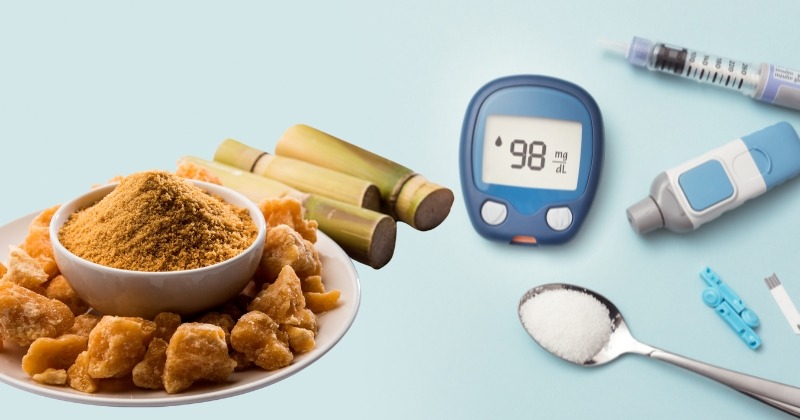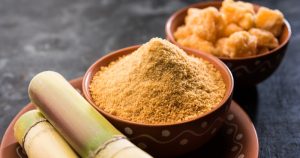

For individuals managing diabetes, finding the right sweetener can be a challenging task. Jaggery, a traditional natural sweetener with a rich history in Indian cuisine, often emerges as a favorable choice due to its unique properties and potential health benefits. In this article, we will explore why jaggery is considered a suitable alternative to refined sugar for individuals with diabetes.
The Glycemic Index (GI) measures how quickly a carbohydrate-containing food raises blood sugar levels. Refined sugar has a high GI, causing rapid spikes in blood glucose levels, which can be problematic for individuals with diabetes. Jaggery, however, has a lower GI compared to refined sugar. This means that it is digested and absorbed more slowly, leading to a gentler and more gradual rise in blood sugar levels.
Unlike refined sugar, which is primarily composed of simple sugars, jaggery contains complex carbohydrates and dietary fiber. These complex carbohydrates break down more slowly in the body, preventing sudden surges in blood sugar. Additionally, the fiber present in jaggery aids in digestion, promotes gut health, and contributes to a feeling of fullness, helping to manage appetite and blood sugar levels.
Jaggery’s mineral-rich profile sets it apart from refined sugar. It contains essential minerals like iron, magnesium, and potassium, which play vital roles in managing diabetes. Iron supports oxygen transport in the body, while magnesium helps regulate blood pressure and supports insulin sensitivity. Potassium is essential for maintaining proper fluid balance and nerve function, aiding in overall diabetes management.
Insulin sensitivity is a key factor in diabetes management. Jaggery’s unique combination of nutrients, including magnesium and other trace minerals, may contribute to improved insulin sensitivity. By enhancing the body’s response to insulin, jaggery could potentially help individuals with diabetes better control their blood sugar levels.
Chromium is a trace mineral that supports carbohydrate metabolism and helps regulate blood sugar. Jaggery naturally contains small amounts of chromium, which can aid in improving insulin sensitivity and promoting stable blood sugar levels. While the amount of chromium in jaggery may be modest, its presence can still contribute to overall diabetes management.
While jaggery offers potential benefits for individuals with diabetes, it’s important to emphasize moderation. Jaggery is still a source of carbohydrates and calories, and excessive consumption can lead to elevated blood sugar levels. Portion control and regular blood sugar monitoring are essential for effective diabetes management, even when using jaggery as a sweetener.
Before making any significant dietary changes, it’s crucial for individuals with diabetes to consult their healthcare providers. While jaggery may be a better option compared to refined sugar for some, individual responses to foods can vary. A healthcare professional can provide personalized guidance based on factors like blood sugar levels, overall health, and dietary preferences.
For individuals with diabetes interested in using jaggery as a sweetener, there are various ways to incorporate it into their diet. Substituting refined sugar with jaggery in beverages, desserts, and even savory dishes can help reduce the impact on blood sugar levels. However, it’s essential to be mindful of the quantity consumed and its effects on blood glucose.
Also Read:
Jaggery, with its lower glycemic index, complex carbohydrates, fiber content, and beneficial minerals, presents itself as a potential natural sweetener option for individuals with diabetes. While it offers certain advantages over refined sugar, moderation and consultation with a healthcare professional remain vital. Embracing jaggery as part of a balanced diabetes management plan can enhance the dietary choices of those looking to sweeten their lives while considering their health needs.



